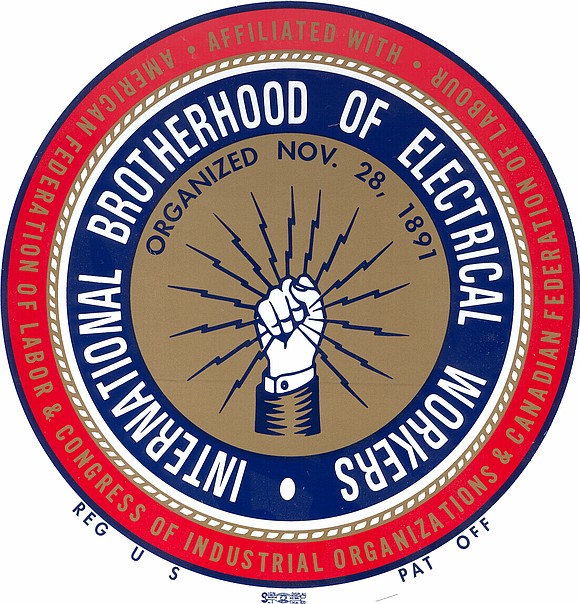Business Manager Tony Sapienza
1837 Members, Retirees Help Defeat “Right-to-Work” Bills in NH
IBEW Local 1837 members and retirees played a crucial role in defeating the two pieces of harmful, anti-union legislation - one in the New Hampshire House and one in the New Hampshire Senate.
The House version of so-called "right-to-work", HB1377-FN, underwent two public hearings in January and February. Union workers and their supporters passionately testified against the bill, which would have permitted workers to benefit from a bargaining unit without contributing anything toward the costs of representation. Diminished resources weaken the ability of unions to negotiate better wages, benefits, and safety conditions.
The full House of Representatives voted 212 to 168 to indefinitely postpone the bill, effectively killing the legislation for the session. Several 1837 members and retirees reached out to their lawmakers prior to the vote, which was pivotal in achieving the wide margin of victory, with as few as two or three phone calls being sufficient to sway undecided lawmakers.
"When you have a legislature of this size, some individuals are only deeply engaged with issues that resonate with them," stated Tony Sapienza, business manager of 1837. "This is a party issue," he added. "But if you explain to the lawmaker that the law is mislabeled, that 'right to work' is a misnomer and that it actually harms workers and imposes regulations, it's enlightening for them."
On the day of the vote, union members and retirees gathered early outside the Capitol in Concord for a rally.
"The idea is to greet the legislators when they're showing up for the day," Sapienza said. "It really feels good at the end of all the work you've done."
A similar bill was reviewed by the Senate Commerce Committee in March. IBEW 1837 member Tom Eaton, a lineman at Eversource in New Hampshire, addressed the committee, urging them to vote against it.
“Right-to-work’s primary intention is to destroy unions from within,” Eaton testified. “It would be unsustainable for a local union to financially support its members who are able to opt out of paying dues. The whole principle of the idea is nonsensical.”
He highlighted a recent report that found health, safety, and economic concerns in 9 "right-to-work" states.
“Workforce fatality rates are highest in “right-to-work” states. In fact, 8 of the top 10 in this category are “right-to-work” states,” Eaton said. “Workplace fatalities for New Hampshire in 2022 were 19. Rhode Island had 7, and Vermont had 11. “Right-to-Work,” Florida was 307 and “right-to-work” Texas was 578.”
Eaton also noted that this legislation, if passed, would diminish the standard of living in New Hampshire and its neighboring states, where there are no “right-to-work” laws currently.
“New Hampshire and New England are good places to work, live, and raise a family. In contrast, individuals in “right-to-work” states have a lower quality of life,” Eaton emphasized.
Retirees Mike Pare and Rick Simons waited outside the hearing room while Eaton testified. The retired IBEW 1837 members, now part of IBEW 104, were present not only to support the fight against “right-to-work” but also their friend.
“It was exciting to see the solidarity between our members as they united to fight these harmful bills,” 1837 Business Representative Kaitlyn Hegarty said. “I’m proud of the work they and all our members did this legislative session to ensure the protection of their union brothers and sisters from this blatant attack on hardworking people and their families in New Hampshire.”

